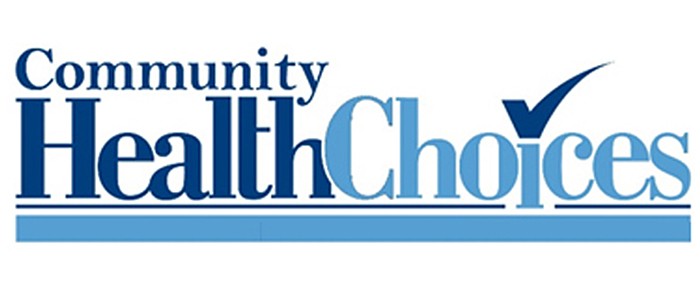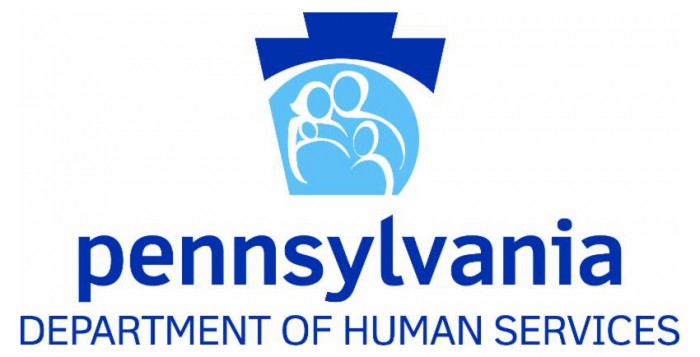The Department of Human Services’ (DHS) Office of Long-Term Living (OLTL) has updated the Frequently Asked Question (FAQ) document related to the transition to Community HealthChoices (CHC). The document, along with additional provider resources, is posted to the CHC web page.
Community HealthChoices Guidance on Service Plans and Service Authorizations
Today the Office of Long-Term Living (OLTL) issued guidance to service coordinators providing services to waiver participants residing in the Community HealthChoices (CHC) Southwest Zone (Zone 1) in their caseloads. The information was copied to providers of waiver services in Zone 1 as well.
The frequently asked questions includes the following statement: The current Service Authorization Form (SAF) that is in place remains effective through the continuity of care period.
OLTL has made available SCE update and resource documents regarding continuity of care, and HCSIS and SAMS service plan updates, for waiver participants in the Southwest Zone who are transitioning to CHC on January 1, 2018.
The following information is available:
- Letters describing actions that SCs can take to address service plan changes in HCSIS and SAMS.
- Flow-charts that illustrate the HCSIS or SAMS service plan changes.
- An EVS resource
OLTL notes that participants residing in Zones 2 through 5 enrolled in any other waiver (Attendant Care, Independence, or OBRA) will not have enrollments, services, or plans automatically end-dated at this time.
If you have any questions, or to request the attachments in alternate format, please call the OLTL Participant Helpline at 800-757-5042 or send an email.
DHS Guidance for Ordering, Referring and Prescribing
The Department of Human Services has been working in collaboration with Managed Care Organizations (MCOs), county oversight organizations, and RCPA regarding the concerns and challenges with implementing federal Ordering, Referring and Prescribing (ORP) requirements by the January 1, 2018 deadline. The Department of Human Services has informed RCPA of the following:
- The ORP requirements for Fee-for-Service continue to apply; i.e., allORP practitioners must be enrolled in the Pennsylvania Medical Assistance (MA) Program or the rendering provider will not be paid.
- In the HealthChoices managed care delivery system, if a rendering network provider submits a claim to an MCO with the National Provider Identifier (NPI) information that results in edits identifying that the non-networkORP is not enrolled in MA, the claim can be paid. However, if the non-MA enrolled ORP has a high volume of claims, the MCO will work with the network provider and non-MA enrolled ORP to have them enroll in MA or work to transition the member to an enrolled MA provider.
Contact your contracting BH-MCO for additional information.
Pennsylvania Link to Community Care
The Wolf Administration has launched the Pennsylvania Link to Community Care website, which connects older Pennsylvanians and individuals with a disability or behavioral health need to services and supports available in their community.
The website provides users with a wide variety of resources, including a home care directory and an information referral tool. It is a collaboration of the departments of Aging (PDA) and Human Services (DHS), and is an extension of PDA’s Aging and Disability Resource call center. By providing assistance online, the initiative further enhances the Commonwealth’s efforts to help Pennsylvanians locate and best utilize services at the local level.
The site features 12 service and support categories: Advocacy, Behavioral Health, Employment, Finance, Health Care, Housing, In-Home Services, Legal, Meals, Protection from Abuse, Support Groups, and Transportation.
Users can find information about organizations, services, and programs within these categories. A major component to the site is the home care directory, which connects individuals to in-home services available in their counties. In-home service providers appearing on the searchable directory may offer personal care, assistance with activities of daily living, companionship services, respite care, and/or habilitation services.
If you are an in-home service provider licensed by the Pennsylvania Department of Health, and would like to appear on the home care directory, you may submit your information by navigating to the footer of the site and selecting “Apply.”
In addition to the home care directory, another major feature of the website is the information referral tool. This tool guides users through a series of questions and then provides a list of resources based on their specific needs.
Moving forward, the departments of Aging and Human Services will continue to enhance the website using data and feedback from users, and expand the resources and information provided through the site. This includes working with your organization and other stakeholders to increase the number of options appearing within each category. Read the press release here.
Executive Order to Review State Licensure Board Requirements & Processes
Executive Order to Review State Licensure Board Requirements & Processes
In the November 11, 2017 Pennsylvania Bulletin, Governor Wolf issued an Executive Order (No. 2017-03) that directs the Commissioner of Professional and Occupational Affairs within the Department of State to conduct a review of the State Professional and Occupational Licensure board requirements and processes. This includes a comprehensive review of the processes, fees, training, and continuing education requirements and prepared report for each type of professional and occupational license. The report is to include: training requirements; licensing, registration, and renewal fees; continuing education requirements; and any other requirements described within the executive order. The report is to also include information regarding the number of other states which require a license for each professional or occupational license, the national and regional averages for training requirements, fees, and continuing education requirements.
The Commissioner has been given the authority to establish an advisory group to assist with the research, data collection, and formatting of the reports, and any other function the Commissioner deems necessary. The advisory group shall be composed of members chosen by the Commissioner from the professional Boards and Commissions, Bureau of Professional and Occupational Affairs (BPOA) staff, and any other persons the Commissioner deems necessary. The advisory group must be established within 30 days from the effective date of this executive order. Additional details regarding the report are provided in the bulletin.
The report is due to the Governor, the Secretary of Policy and Planning, and the Secretary of the Commonwealth no later than 180 days from the establishment of the advisory group or 210 days from the effective date of this executive order, whichever is sooner.
Some of the boards impacted by this executive order include: State Board of Physical Therapy, State Board of Speech–Language Pathology and Audiology, the State Board of Medicine, the State Board of Nursing, the State Board of Occupational Therapy, etc.
The executive order is effective immediately.
Hearing Scheduled on MACRA & Alternative Payment Models
The Energy & Commerce House Health Subcommittee scheduled a hearing for Wednesday, November 8, 2017, at 10:00 am in room 2123 of the Rayburn House Office Building. The hearing will focus on the Medicare Access and CHIP Reauthorization Act (MACRA) of 2015 and Alternative Payment Models: Developing Options for Value-based Care.
Members of the subcommittee will discuss alternative payment models (APMs) and hear from those that are already engaged in the transition to value-based care, as well as those developing new models and stakeholders who are already delivering improved outcomes and savings for Medicare beneficiaries and taxpayers.
The Majority Memorandum, witness list, and witness testimony for the hearing will be available here as they are posted.
OLTL Waiver Amendments Posted on DHS Website
The Office of Long-Term Living (OLTL) recently announced that the waiver amendments effective as of October 1, 2017 have been posted to the Department of Human Services (DHS) website. The waivers and links to each one include:
Questions related to this communication may be directed to the OLTL Bureau of Policy and Regulatory Management at 717-783-8412.
Community HealthChoices Eligibility Info Issued by OMHSAS
As the implementation of Community HealthChoices (CHC) approaches the January 1, 2018 launch in the Southwest Region, the Department of Human Services (DHS) has developed informational materials for those individuals who will be covered by the new program. The documents, including notices and the pre-enrollment packet, are posted on the DHS website, where you will also find their most recent participant document, “CHC: Here’s What You Need to Know” (available for download in English and Spanish).
In addition, a document designed to clarify eligibility for CHC is available here. It includes the following information:
Individuals are NOT eligible for CHC if they are a person with an intellectual or developmental disability who is eligible for services through the Department of Human Services’ Office of Developmental Programs (ODP), OR are a resident in a state-operated nursing facility, including state veterans homes.
Please visit the CHC website or call the CHC Provider Hotline at 833-735-4417 with any questions.
SAMSHA Older Adults Webinar Series – Collaborative Care Medicare Codes
Older Adults Webinar Series: Collaborative Care Medicare Codes
Friday, October 27, 2017
2:00 PM – 3:30 PM EST
Presenters:
- Moderators: Christopher D. Carroll, M.Sc., Director of Health Care Financing and Systems Integration and Mitchell Berger, MPH, Substance Abuse and Mental Health Services Administration (SAMHSA)
- Michael Schoenbaum, PhD, Senior Advisor for Mental Health Services Epidemiology & Economics, National Institute of Mental Health (NIMH), National Institutes of Health
- Lori Raney, MD, Principal, Health Management Associates
Register for free: https://attendee.gotowebinar.com/register/5476874512139434498
This webinar will focus on the recently introduced Medicare payment codes for collaborative care with a specific focus on the use within behavioral health contexts. The presenters will discuss the role of collaborative care in Medicare, identify and the application of new payment codes and behavioral health integration. There will also be time for questions.
Following the webinar, participants will:
- Understand the prevalence and impact of behavioral health conditions among patients in general medical settings;
- Understand the prevalence and impact of co-occurring behavioral health and physical health conditions;
- Recognize the elements of effective behavioral health integration, particularly the Collaborative Care model; and
- Recognize and understand the application of new Medicare codes for behavioral health integration including those that support Collaborative Care.
Disclaimer: This webinar was funded by the Substance Abuse and Mental Health Services Administration (SAMHSA), U.S. Department of Health and Human Services (HHS). The views and opinions expressed and the content of the webinar are those of the participants and do not necessarily reflect the views, opinions, or policies of SAMHSA or HHS.
Questions? Contact: communications@thenationalcouncil.org















